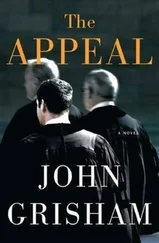Sebastian walked to the wall on his left and pointed to a large map of the proposed bypass. He pointed closer and said, “This is Jackson Elementary School, prekindergarten through grade five. Four hundred students. Right now it sits off to itself, isolated from traffic and noise, just minding its own business, educating little kids while the birds chirp outside and the breeze blows the leaves here and there. However, economic development is on the way. The bypass rips through this parking lot here and comes to within a hundred yards of the school’s front door. So in two years there will be four lanes of heavy traffic, big trucks and buses blasting diesel fumes into the air while cars fly by doing eighty miles an hour. It’s a disaster, and the sad part is that no one has carefully studied the impact the bypass will have on the health of these kids. The governor doesn’t have a clue, nor do his people. The state highway department hasn’t studied it. We’re raising money right now to hire experts who can analyze it and make predictions, but money is tight.”
Theo doubted he and Hardie were expected to write big checks. He asked, “Where do we fit in?”
“Organize the kids. They’re too young for Facebook, but they have older brothers and sisters. Four hundred students equals about three hundred families—some have more than one at the school. Organize the kids, the parents, the teachers. I like the idea of kids—you two—getting other kids involved and angry. If the kids get mad, then the parents get mad, and, of course, the parents are the voters. It’s all coming down to politics. What do you think?”
Theo and Hardie were frowning at the map, not sure what to say.
Sebastian never waited long for an answer. “And it gets better,” he said, taking a step to the side and pointing at the county’s new soccer complex near Jackson Elementary. “Look at this, the SSC—Stratten Soccer Complex. Opened two years ago and the site of ten new fields, all with lights.”
“I play there,” Hardie said.
“Do you know how many kids play soccer in this area?”
“About a million,” Theo said.
“A lot. Now, the bypass shaves off only three of the fields here on the eastern side, and, of course, the promise is that these fields will simply be relocated over on the western side. Two problems with that. First, you can’t believe any of the promises being made. Second, the state does not yet own the property where it’s promising to put these three fields. But let’s say the state keeps its word and relocates the three fields. That means on any afternoon from March through October there will be several hundred kids, parents, coaches, and other spectators at the complex trying to enjoy the games with four lanes of traffic roaring by.”
“So we organize the soccer kids too,” Theo said.
“Exactly. Thousands of them. Get the soccer crowd upset, and our five county commissioners will run for cover.”
“It’s that easy?” Theo asked.
“No, it’s not. Keep in mind, Theo, that a lot of folks who live here are in favor of the bypass. They’re tired of the traffic on Battle Street and they think this is the solution. Any bypass is a good bypass. Heard that?”
“Yes. I read it in the newspaper.”
“It’s not uncommon.”
Sebastian stepped away from the map and rested his rear end on his desk. He said, “The idea here, guys, is for the kids in this community to get mad, involved, and vocal. On the one hand, you have the big guys—the politicians, the trucking companies, the contractors, the businessmen who write big checks to the politicians—and on the other hand you have a bunch of kids who are about to get run over. It could be a great story, and, frankly, we need all the help we can get. This is an uphill fight, and the big money is against us. The public hearing is next month, and we’re working around the clock.”
“When will the commissioners vote?” Hardie asked.
“At the public hearing. They’re not talking much, but it looks like two are in favor of the bypass, one is opposed, and the other two are undecided. But who knows what these guys will do. Frankly, right now, I’m not that optimistic.” His cell phone vibrated. He yanked it out of his pocket, looked at it, and decided not to answer. Then his desk phone began buzzing, and he ignored that too.
Theo loved this guy. He was a lawyer, a tough cool guy with an important job and a passion for saving the environment. He seemed fearless, ready for a good fight, ready to take on the big boys. Even his office was cool, so unlike the rather stuffy ones at Boone & Boone.
Sebastian said, “We need your help, guys. Whatta you say? You can make a real difference here if you jump in and start fighting. We’re on the same team.”
Hardie looked at Theo, who looked at Sebastian, who was nodding as if to say, “Are you guys tough enough?”
“I’m ready,” Hardie said.
“How about it, Theo?” Sebastian said. “They’ve already tried to kill your dog.”
Theo flashed back to the nightmare of Judge being pounded with a stick, and bleeding, and looking up at Theo with those painful, frightened eyes. Theo thought about his dog, and he thought about the Quinn family and their beloved farm, and the more he thought the more determined he became. He looked at Hardie, then he glared at Sebastian, gritted his teeth, and said, “I’m in.”
“All right!” Sebastian said as he slapped him on the shoulder.
At precisely 7:00 p.m. on Thursday evening, the three Boones plus Judge sat down for dinner. As always, on Thursdays, it was a roasted chicken from a Turkish deli, served with hummus, pita bread, and, tonight, couscous.
It was not Theo’s favorite meal of the week. Judge, however, loved the chicken. He seemed to be improving by the hour, moving around more and sleeping less.
Mrs. Boone asked, “Theo, where did you get off to this afternoon?”
Theo anticipated this. Someone in the law firm usually noticed if he came and went, and that was usually Elsa. She could be on the phone with two lines holding, and chatting with a client at the front door, and reading e-mails on her screen, all at the same time, and still know precisely when Theo sneaked out the back door. He swallowed hard and said, “Hardie and I rode over to the Stratten Environmental Council.”
His mother was intrigued and said, “Oh really.”
His father frowned and said, “Why’d you go there?”
Theo said, “Hardie’s father was there and he wanted me to stop by. On a wall, they have this huge blowup of the photo of Judge and me leaving court last night.”
“So you’re the hero?” his mother asked.
“Sort of, along with Judge.”
“Did you meet Sebastian Ryan?” she asked.
“I did, a real nice guy. He wants Hardie and me to help organize a group of kids to oppose the bypass.”
Mrs. Boone was still smiling, and she was also watching Mr. Boone, as if she expected some harsh words. Theo wanted his mother around for this discussion.
Mr. Boone asked, “What sort of a group of kids?”
“Students at Jackson Elementary and also the soccer kids.” Theo took a big bite as if such involvement was no big deal.
“That’s a great idea, Theo,” she said. “How do you plan to do it?”
“We haven’t decided yet.”
“Why do you insist on getting involved in this mess, Theo?” Mr. Boone asked slowly and firmly.
Theo’s reply had been practiced a few times. He took a sip of water, cleared his throat, and said, “Because I think it’s wrong for the Quinns to lose a farm that’s been in the family for over a hundred years. It’s wrong for the state to take private property for unnecessary projects. It’s dangerous to build big roads next to schools and soccer parks, especially when no one has studied the pollution. It’s wrong for politicians to help their buddies make money on stuff like this. Lots of reasons, Dad.”
Читать дальше












